EFFECTS OF FEMALE GENITAL MUTILATION (FGM)

According to World Health Organization, more than 200 million girls and women alive today have undergone female genital mutilation (FGM) in 30 countries in Africa, mostly in the Middle East and Asia. All forms of FGM are associated with increased health risk in the short- and long-term. Below are some of the health risks.
Short-term health risks of FGM
Severe pain. Cutting the nerve ends and sensitive genital tissue causes extreme pain. The healing period is also painful.
Shock. Can be caused by pain, infection and/or haemorrhage.
Genital tissue swelling. Due to inflammatory response or local infection.
Infections. May spread after the use of contaminated instruments (e.g. use of same instruments in multiple genital mutilation operations), and during the healing period.
Excessive bleeding (haemorrhage). Can result if the clitoral artery or other blood vessel is cut.
Human immunodeficiency virus (HIV). The direct association between FGM and HIV remains unconfirmed, although the cutting of genital tissues with the same surgical instrument without sterilization could increase the risk for transmission of HIV between girls who undergo female genital mutilation together.
Urination problems. These may include urinary retention and pain passing urine. This may be due to tissue swelling, pain or injury to the urethra.
Impaired wound healing. Can lead to pain, infections and abnormal scarring.
Death. Death can result from infections, including tetanus, as well as haemorrhage that can lead to shock.
Mental health problems. The pain, shock and the use of physical force during the event, as well as a sense of betrayal when family members condone and/or organize the practice, are reasons why many women describe FGM as a traumatic event.
Long-term health risks of FGM
Infections:
- Chronic genital infections. With consequent chronic pain, and vaginal discharge and itching. Cysts, abscesses and genital ulcers may also appear.
- Chronic reproductive tract infections. May cause chronic back and pelvic pain.
- Urinary tract infections. If not treated, such infections can ascend to the kidneys, potentially resulting in renal failure, septicaemia and death. An increased risk of repeated urinary tract infections is well documented in both girls and adult women who have undergone FGM.
Painful urination. Due to obstruction of the urethra and recurrent urinary tract infections.
Vaginal problems. Discharge, itching, bacterial vaginosis and other infections.
Menstrual problems. Obstruction of the vaginal opening may lead to painful menstruation (dysmenorrhea), irregular menses and difficulty in passing menstrual blood, particularly among women with Type III FGM.
Excessive scar tissue (keloids). Excessive scar tissue can form at the site of the cutting.
HIV (Human immunodeficiency virus). Given that the transmission of HIV is facilitated through trauma of the vaginal epithelium which allows the direct introduction of the virus, it is reasonable to presume that the risk of HIV transmission may be increased due to increased risk of bleeding during intercourse, because of FGM.
Sexual health problems. FGM damages anatomic structures that are directly involved in female sexual function and can therefore also influence women’s sexual health and well-being. Removal of, or damage to, highly sensitive genital tissue, especially the clitoris, may affect sexual sensitivity and lead to sexual problems, such as decreased sexual desire and pleasure, pain during sex, difficulty during penetration, decreased lubrication during intercourse, and reduced frequency or absence of orgasm (anorgasmia). Scar formation, pain and traumatic memories associated with the procedure can also lead to such problems.
Childbirth complications (obstetric complications). FGM is associated with an increased risk of caesarean section, postpartum haemorrhage, recourse to episiotomy, difficult labour, obstetric tears/lacerations, instrumental delivery, prolonged labour, and extended maternal hospital stay. The risks increase with the severity of FGM.
Obstetric fistula. A direct association between FGM and obstetric fistula has not been established. However, given the causal relationship between prolonged and obstructed labour and fistula, and the fact that FGM is also associated with prolonged and obstructed labour, it is reasonable to presume that both conditions could be linked in women living with FGM.
Perinatal risks. Obstetric complications can result in a higher incidence of infant resuscitation at delivery and intrapartum stillbirth and neonatal death.
Mental health problems. Studies have shown that girls and women who have undergone FGM are more likely to experience post-traumatic stress disorder (PTSD), anxiety disorders, depression and somatic (physical) complaints (e.g. aches and pains) with no organic cause.
Pain. Due to tissue damage and scarring that may result in trapped or unprotected nerve endings.
Though FGM may be normative and considered to be of cultural significance in some settings, the practice is always a violation of human rights, with the risk of causing trauma and leading to problems related to girls’ and women’s mental health and well-being. (WHO,2020)
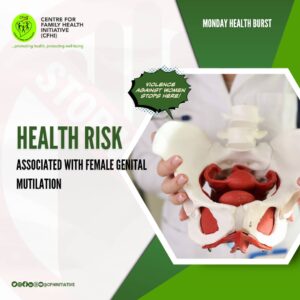

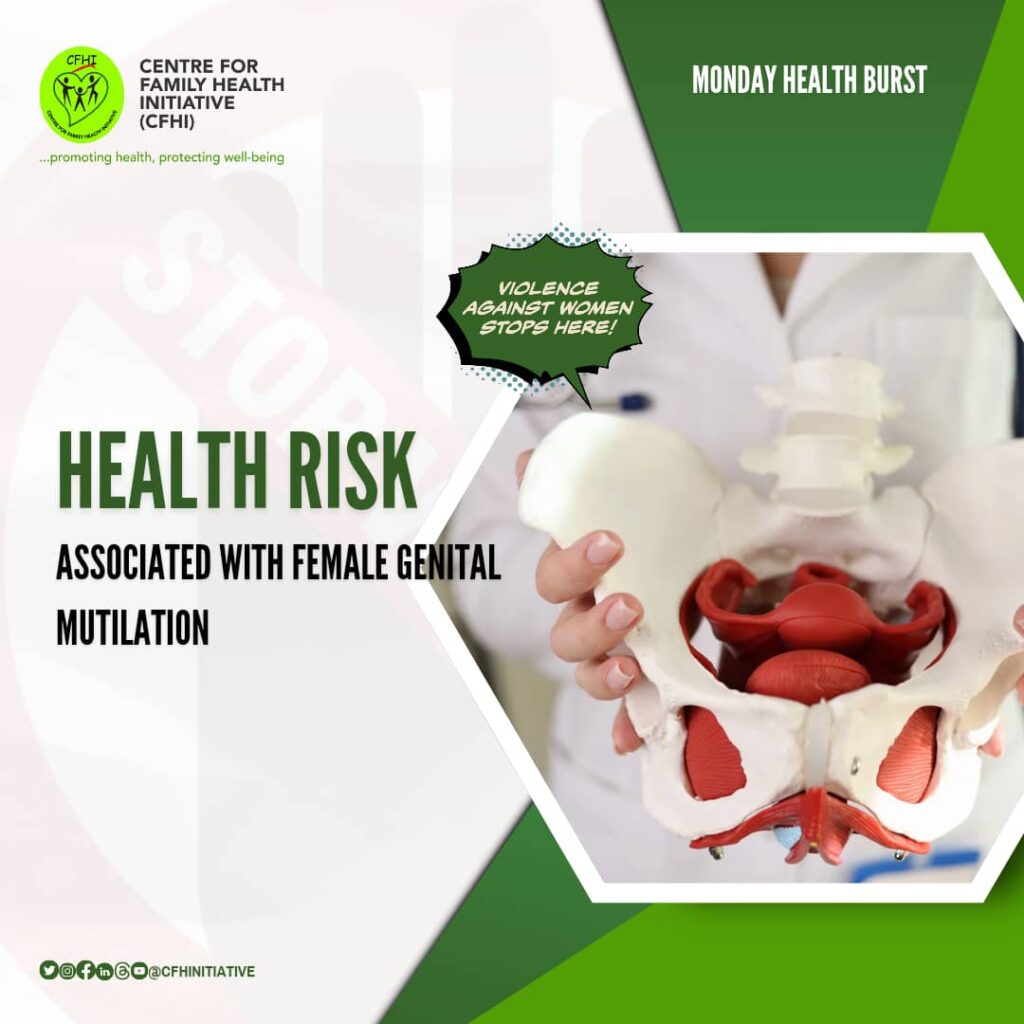
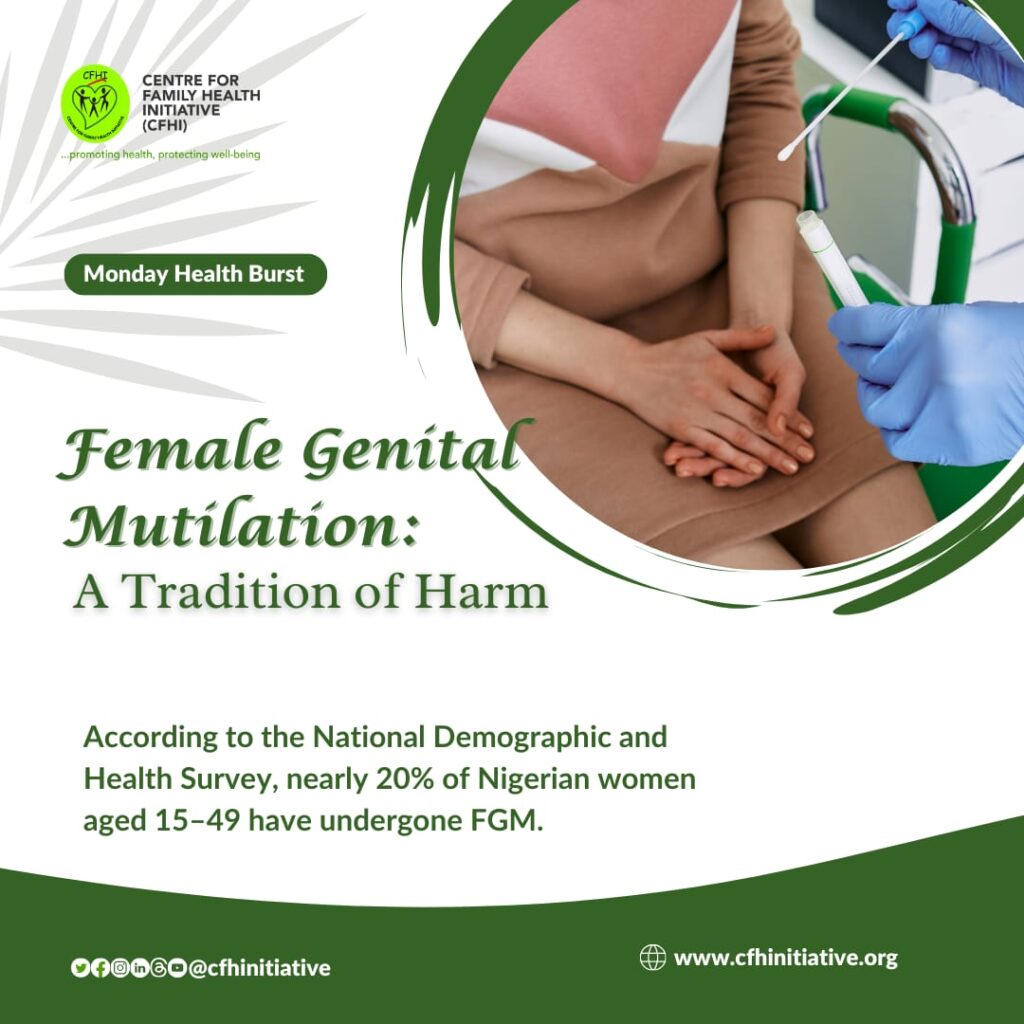
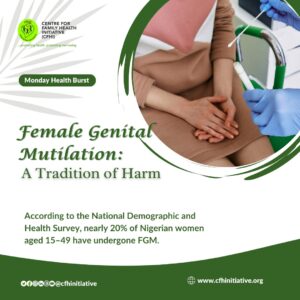
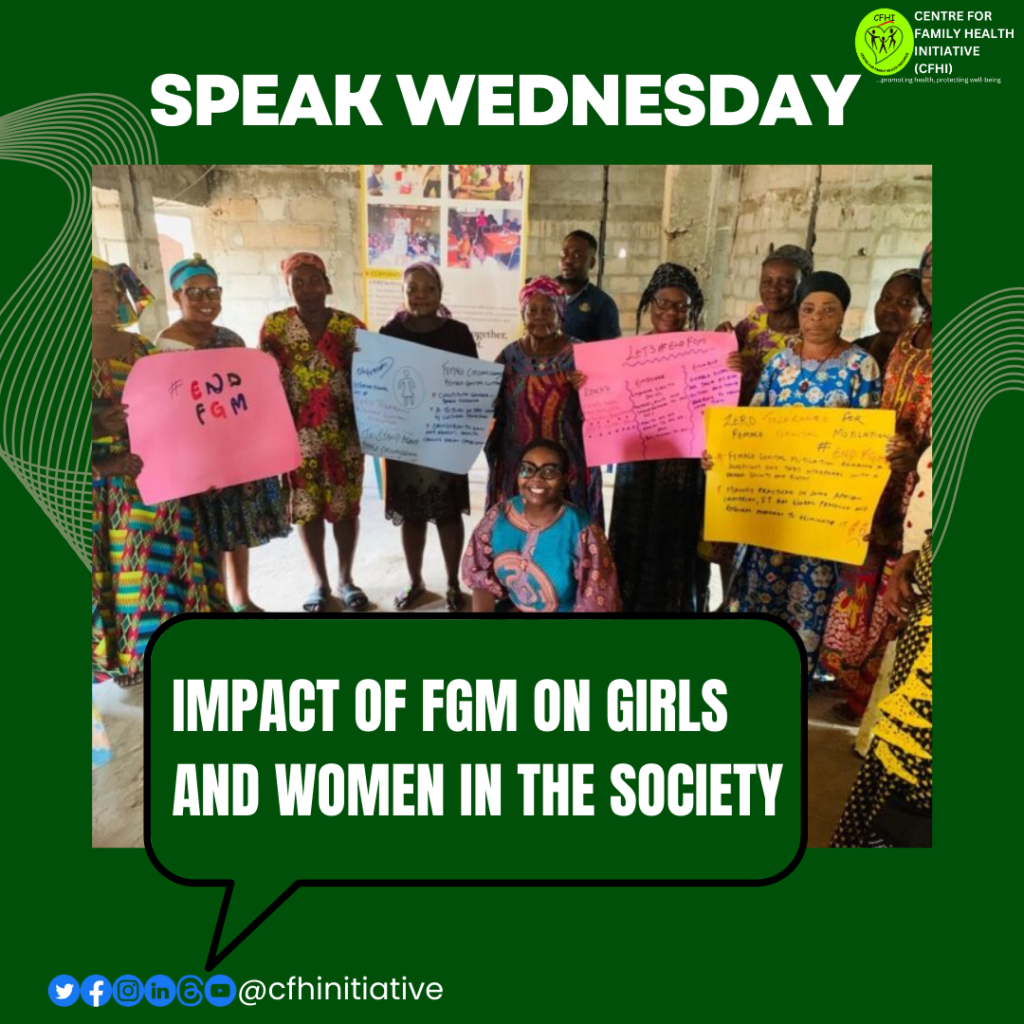
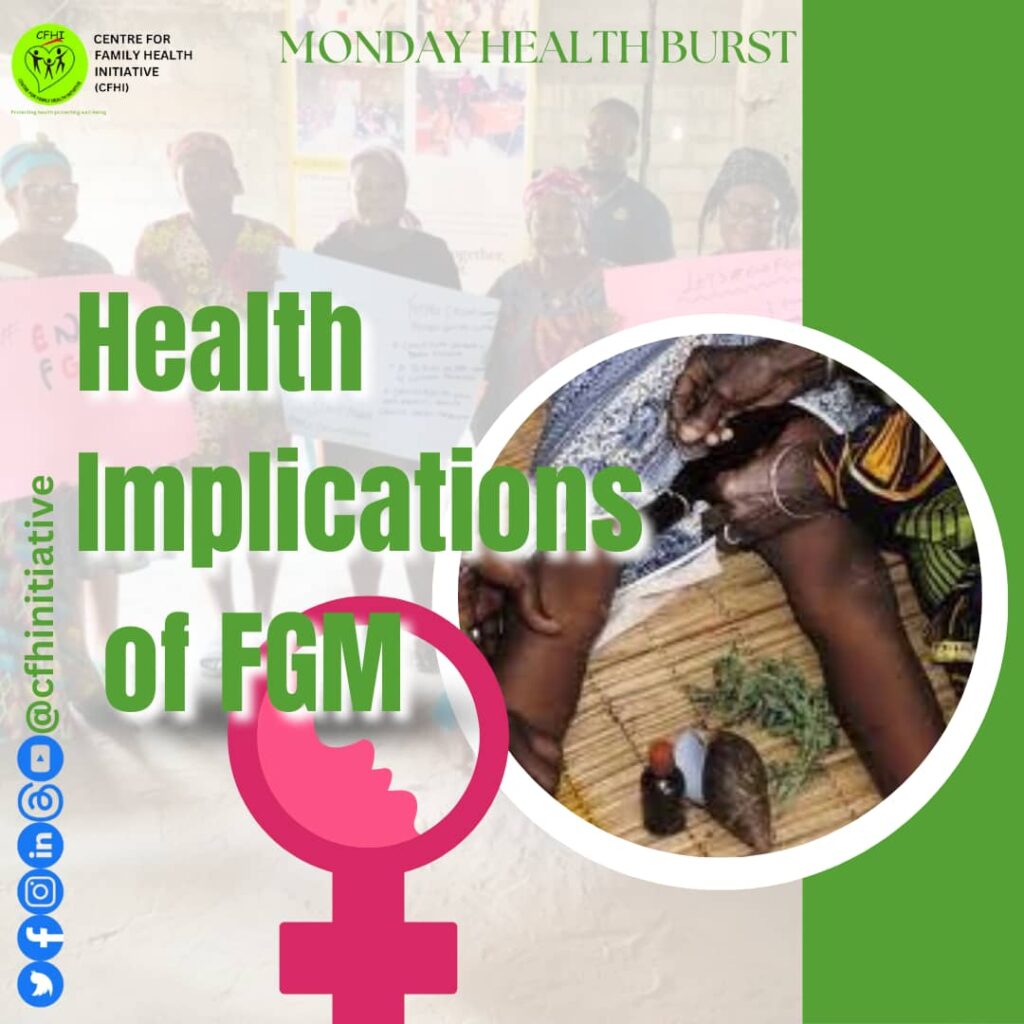
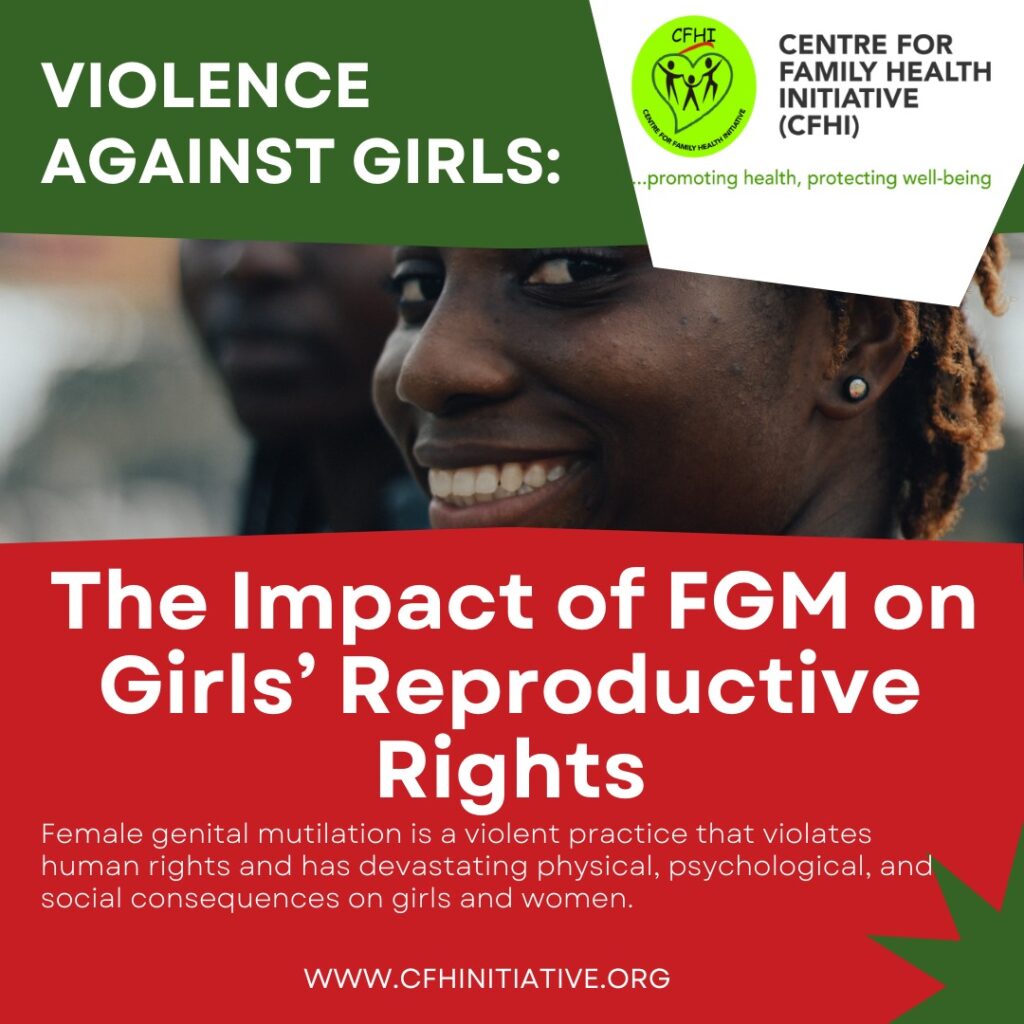
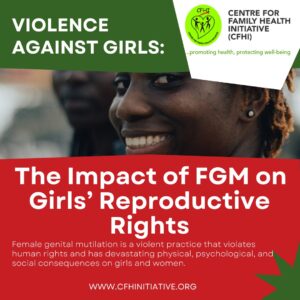

 “Have you ever heard of Female genital mutilation? The doctor asked me. This was after my over 20 hours of labor, an ordeal which left me depressed for over a month. It took me a while before I responded because it was the least question I ever would imagine answering at such moment.
“Have you ever heard of Female genital mutilation? The doctor asked me. This was after my over 20 hours of labor, an ordeal which left me depressed for over a month. It took me a while before I responded because it was the least question I ever would imagine answering at such moment.